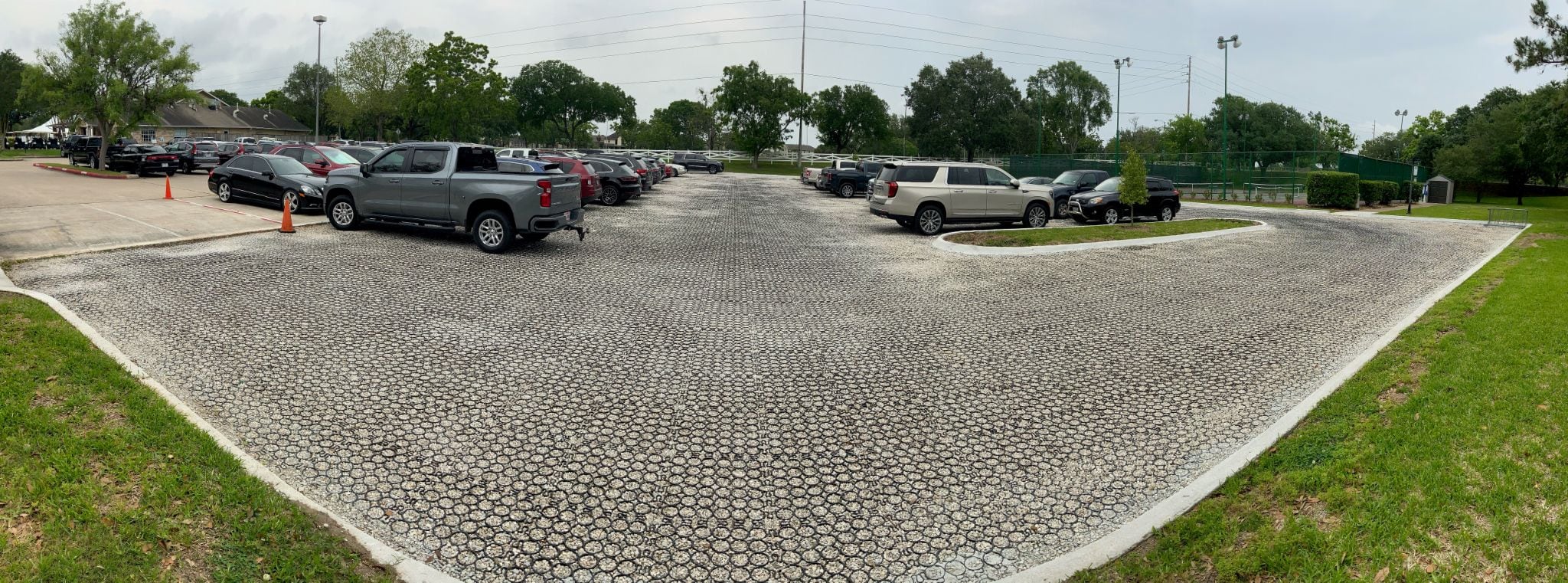
Commercial paving has been dominated by materials like concrete and asphalt for as long as they’ve been around. These materials are somewhat inexpensive, durable, and professional-looking enough to suit many business owners’ needs.
However, while these materials are suitable as pavement options, they’re far from the gold standard of pavement in 2021. New advancements have been made in commercial paving that completely surpass anything asphalt or concrete has to offer. Unfortunately, many businesses are still stuck in the dark ages when it comes to their commercial pavement.
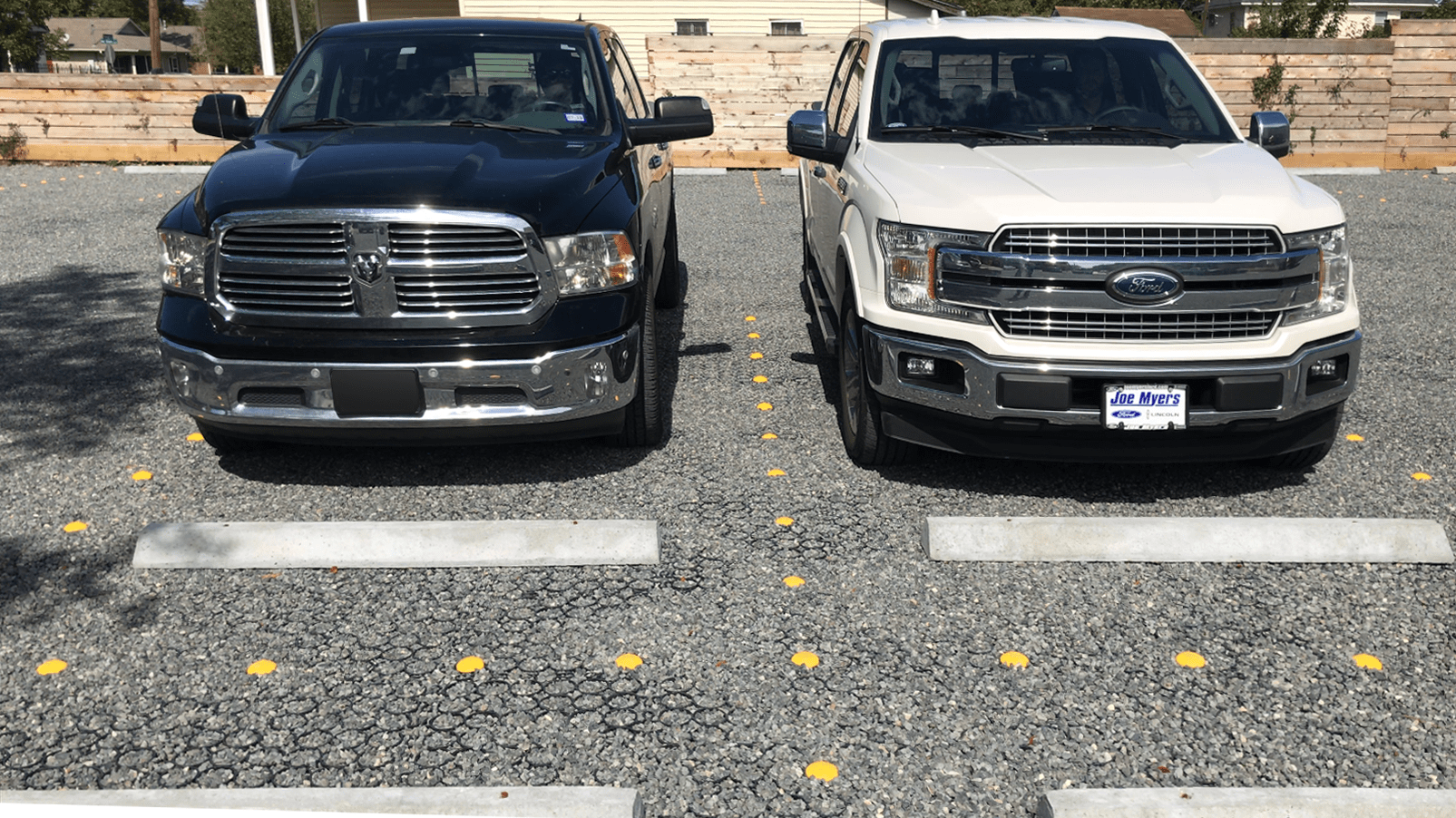
In case you were unaware of the superior alternative to either concrete or asphalt, let’s take a look at how traditional pavement materials stack up against more new-age paving materials like permeable commercial pavers.
The Problem with Traditional Pavement
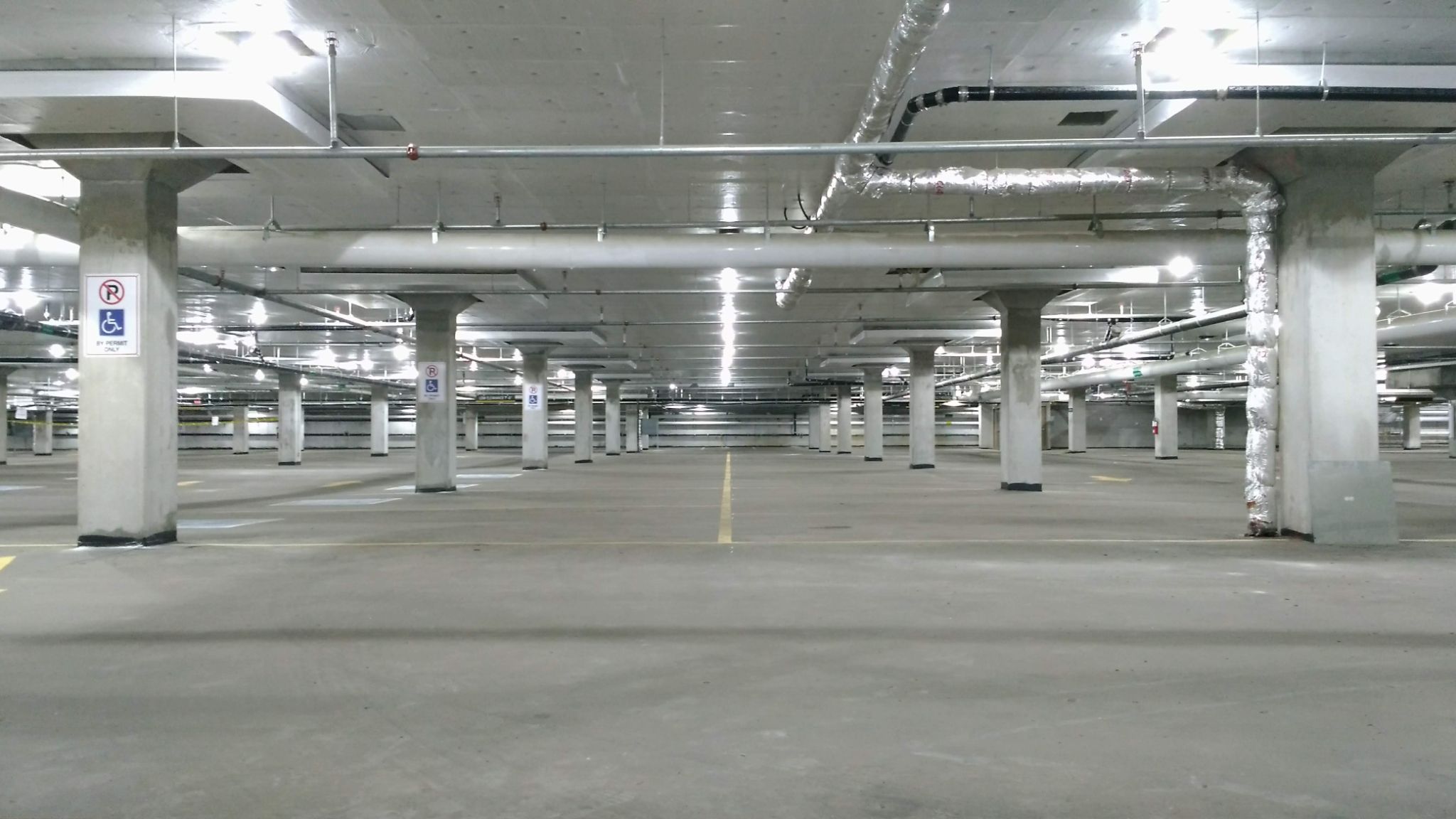
The reason most business owners still gravitate towards asphalt and concrete is that they simply don’t know any better. These materials have been used to pave walkways, parking lots, and other commercial areas for decades. They also perform at an average level when it comes to durability and functionality. There are, however, many problems with asphalt and concrete.
For starters, these materials require constant maintenance. They do not stand up well in extreme temperatures, with asphalt melting in high temps and concrete cracking in low temps. Asphalt and concrete both need to be resealed every 3 to 5 years, and resurfaced every 10 to 15 years.
Neither resealing nor surfacing are inexpensive procedures, and these costs can add up drastically over the lifetime of the pavement. Not only that, asphalt and concrete parking lots also need to be repainted when the lot lines inevitably wear out. In addition to the extensive maintenance costs of asphalt and concrete pavement, they also require additional drainage systems, in most cases.
You can get away with having a concrete pathway without any drainage, however, parking lots, curbs, and other large areas of concrete usually require drainage grates, and/or sloping so that stormwater will naturally filter into the road or another area where it can be drained. Some businesses even have detention ponds located on their property where stormwater is held until it can be slowly released back into the local sewer system.
This is expensive to install and cuts into the amount of land you can use for other purposes like additional parking spots. Neither asphalt nor concrete are considered eco-friendly either, with both releasing a lot of carbon into the air as they are produced.
Permeable Pavers Are the Future of Commercial Paving\
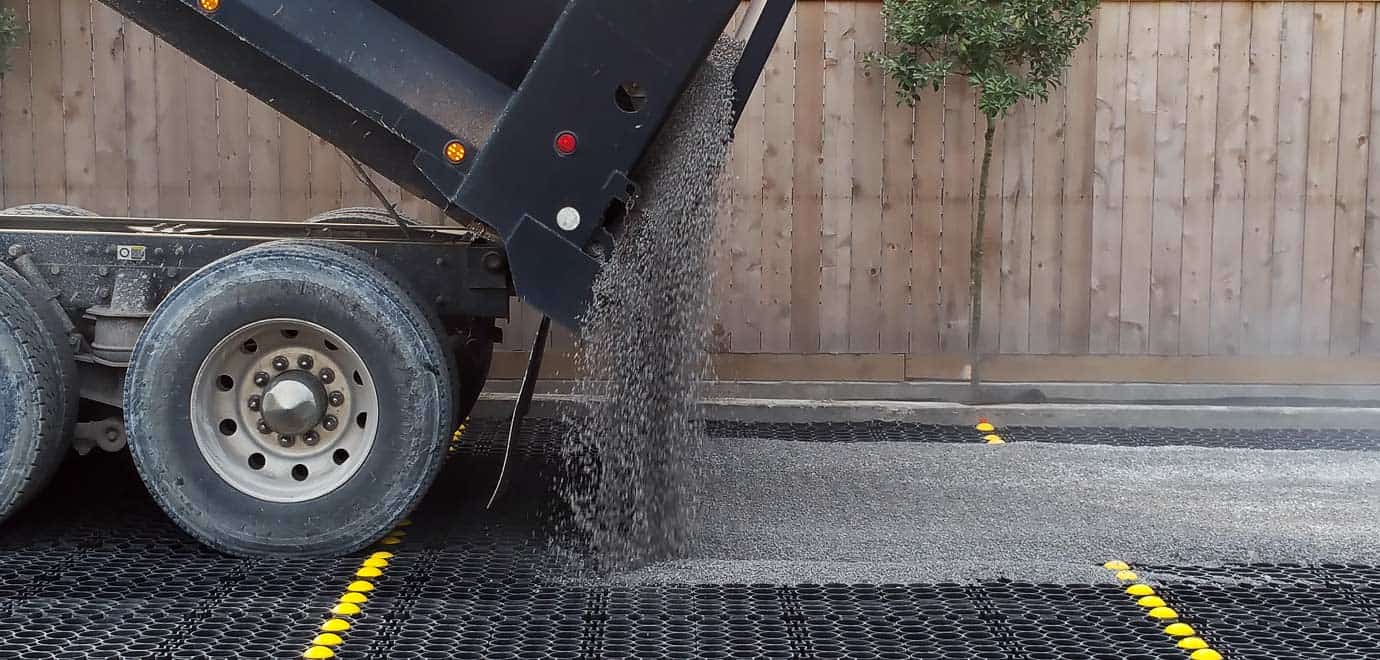
As environmental awareness and eco-friendliness become higher priorities for many businesses, the type of pavement we use will become one of the main focus points for builders and architects. Permeable plastic pavers are one of, if not the most eco-friendly paving material on the market.
The commercial pavers produced by TRUEGRID, for example, are made from 100% plastic. They take far fewer resources and time to install, leading to an overall healthier process from production to installation. Eco-friendliness is far from the only valuable trait these pavers possess, though.

TRUEGRID products such as TRUEGRID PRO PLUS, TRUEGRID PRO LITE, and TRUEGRID ROOT permeable pavers are proven to be more durable than concrete and asphalt over the long-term. In terms of sheer strength, even when empty, they can handle the full weight of a monster truck jumping off a ramp and landing on them, without breaking.
TRUEGRID permeable pavers also require almost zero maintenance throughout their lifetime, and can last 40 to 50 years before needing to be replaced. The land utilization you gain with TRUEGRID pavers is also a huge plus for commercial business owners.
The pavers are almost 100% permeable, so they can drain stormwater through them at an incredible rate. This allows the water to filter through the gravel within the pavers and drain into the water table below naturally, without putting a burden on local sewer systems.
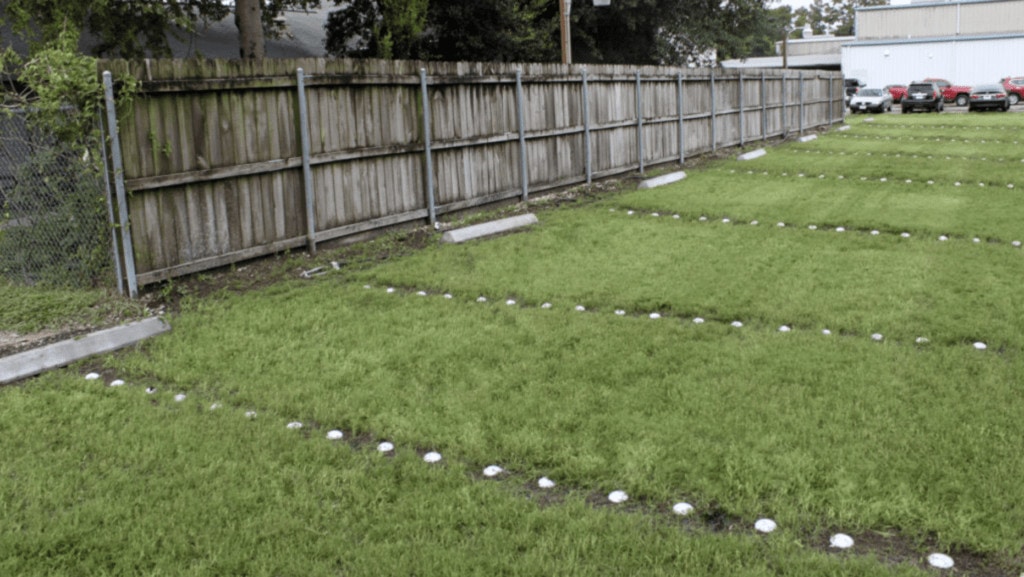
It also eliminates the need for an above-ground detention pond, as all water drainage needs are taken care of directly below the pavement itself. That means you get to use 100% of your land for whatever you want.
TRUEGRID permeable pavers use permanent plastic markers for parking lot lines and other designs, which means no repainting lot lines. The installation is also incredibly quick, with smaller projects able to be completed in less than a day. Even large lots can be completed in a handful of days, as opposed to the weeks it would take to complete a big concrete or asphalt lot.
Commercial Paving Has Taken a Big Leap Forward in 2021
When you stack up the negatives of asphalt and concrete against the positives of products like TRUEGRID permeable commercial pavers, it’s safe to say that permeable pavers are poised to take over the commercial pavement industry.
Clients are already raving about their permeable pavement, citing the stylistic beauty, cost-effectiveness, eco-friendliness, and low maintenance requirements, among other benefits. If you’re about to install pavement on your commercial property, you can’t go wrong with TRUEGRID commercial pavers. Contact TRUEGRID today for a quote and join the many businesses making the switch to permeable pavement.



